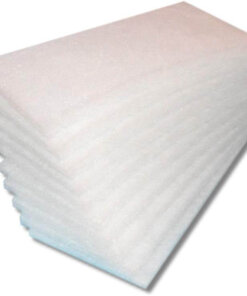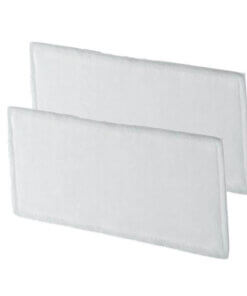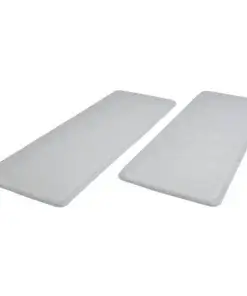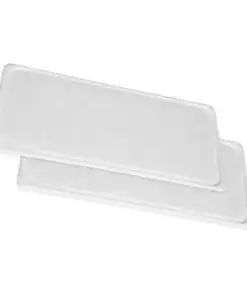BRINK Renovent Excellent 300/400/450 analogue filter set (F7 carbon filter + G3 standard filter) 525x185mm
€54.66
Filter specifications:
- Brink part number: 531770 / 535014 / 580594 / 531773 / 535016 / 580594 / 580604
- A set of HRV replacement filters for Brink Excellent 300/400/450 includes 2 pieces air filters (EN779)
1 x F7 activated carbon filter 525x185x24 mm
1 x G3 standard filter 525x185x24 mm
Extra benefits
- 5% extra discount when ordering 2 or more products
What Is an Activated Carbon Filter?
Activated carbon filters are small pieces of carbon, typically in granular or powdered block form, that have been treated to be extremely porous. It is so cavernous, in fact, that just one gram of activated carbon can easily have a surface area of 500m2 or higher. Vast surface area enables these carbon filters to adsorb exponentially more contaminants and allergens than traditional carbon.
Adsorption is a distinct process where organic compounds in the air or water react chemically with the activated carbon, which causes them to stick to the filter. The more porous the activated carbon is, the more contaminants it will capture. These filters are most notably used to remove hazardous compounds in home air purification systems.
How Would I Benefit From an Activated Carbon Filter?
There are many benefits associated with using activated carbon filters. These purifiers can be used to rid your air of unwanted or harmful contaminants that can pose a hazard to your health.
In air ventilation systems, activated carbon filters can be used in conjunction with HEPA filters to trap known allergens and impurities like:
- Dust
- Lint
- Mold spores
- Smoke
- Common household chemicals
- Benzene and other VOCs
Carbon filters also help eliminate unpleasant odors so your indoor air remains fresh. Used together, activated carbon and HEPA filters can trap 99.97% of small particles 0.3 microns and higher as well as most larger particles, especially spores. Activated carbon filters can particularly benefit people who suffer allergies or aggravation from impure air, including second hand smoke.







 Svenska
Svenska Deutsch
Deutsch Norsk Bokmål
Norsk Bokmål Lietuviškai
Lietuviškai